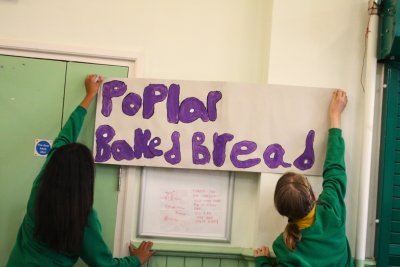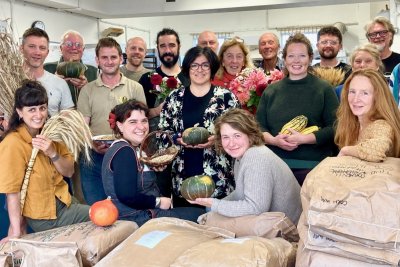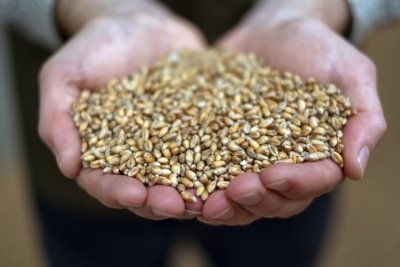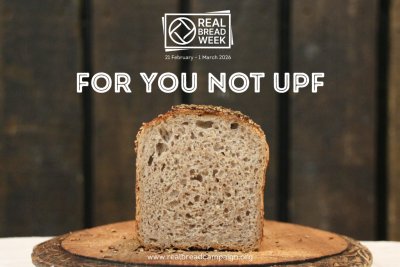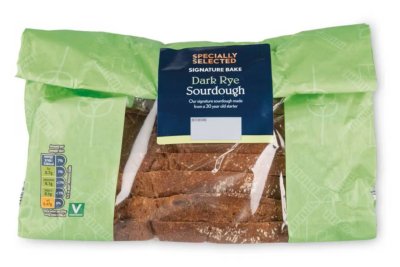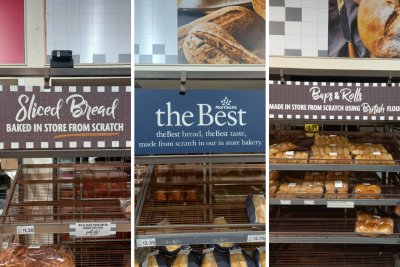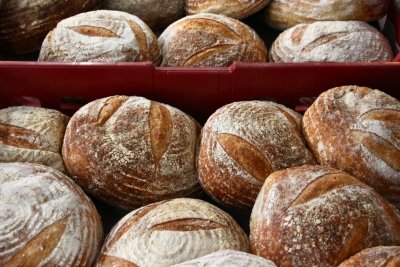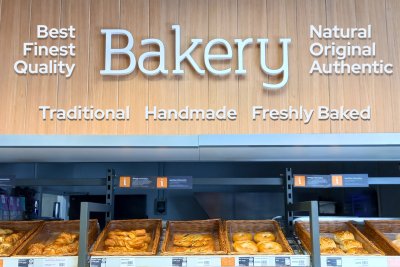 Food labelling free-for-all?. Credit: Chris Young / www.realbreadcampaign.org CC-BY-SA-4.0
Food labelling free-for-all?. Credit: Chris Young / www.realbreadcampaign.org CC-BY-SA-4.0
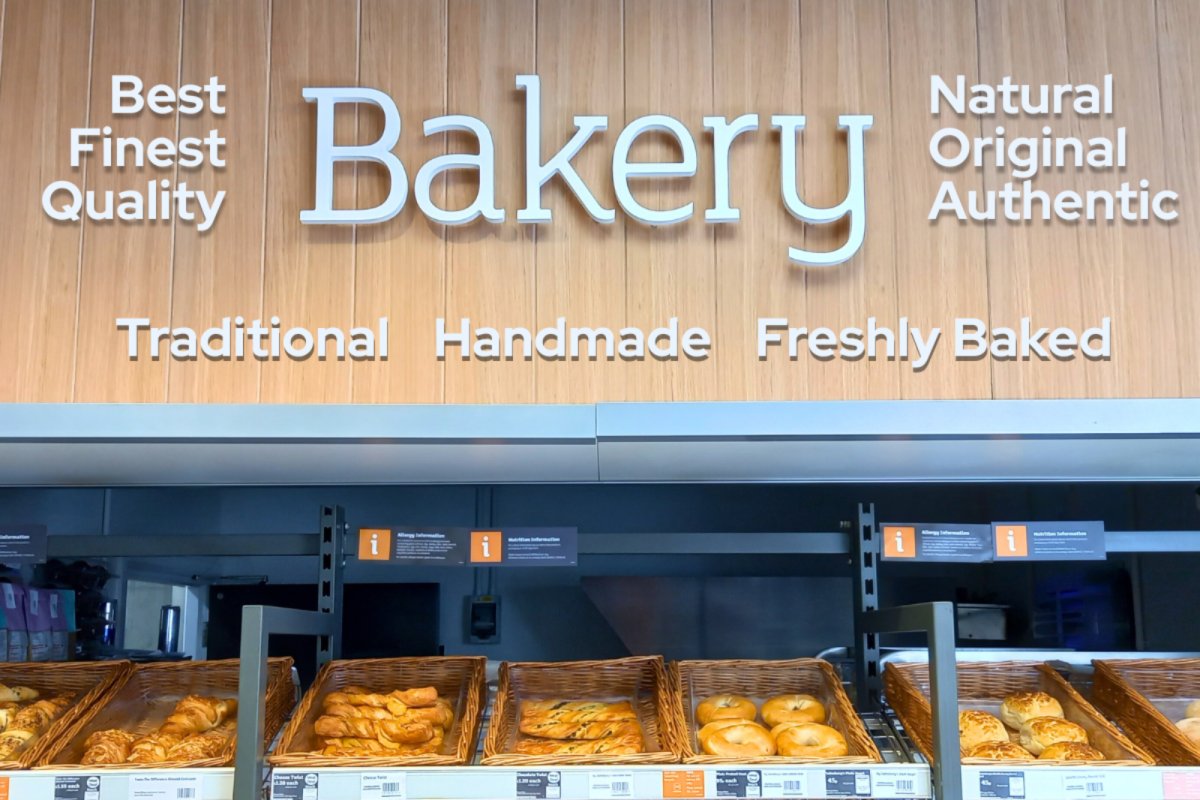
CTSI supports Real Bread Campaign’s food labelling call
Trading standards body urges Government to protect shoppers from misleading marketing.
Chartered Trading Standards Institute (CTSI) has added its support to the Real Bread Campaign’s call on the Government to update and improve standards and guidance on food labelling and marketing.
Getting fresh with food facts
In late 2024, the Real Bread Campaign learned that Defra had ‘archived’ ‘Criteria for the use of the terms fresh, pure, natural etc. in food labelling’, governmental guidance to commonly-used food marketing terms, without consultation or any plan to replace it.
Following correspondence between the Campaign and Defra, Kath Dalmeny, CEO of Sustain (the food and farming charity that runs the Campaign) wrote to Daniel Zeichner, Minister of State for Food Security and Rural Affairs in February 2025. Amongst the letter’s proposals was reinstating the guidance temporarily as a no-cost, simple first step, to avoid leaving a vacuum of confusion. The Campaign followed up the letter in May 2025.
Trust
CTSI Head of Policy & Campaigns, Jessica Merryfield, said: ‘We know this guidance was valued by both Trading Standards professionals and businesses alike, giving clarity and ensuring consistency. This, in turn, gave confidence to consumers, who could trust the terms when they saw them. CTSI support the call for the updating and re-issuing of this guidance, for the benefit of all.’
Real Bread Campaign coordinator, Chris Young, said: ‘With many people’s budgets getting tighter, it’s increasingly important that everyone can trust we’re getting what companies promise we’re paying for. Clear legislation and official guidance also help to create a level playing field that is beneficial to businesses of all types and sizes.’
Following temporary reinstatement of the guidance, both organisations propose that the Government runs a public consultation on updating and improving standards and guidance. The Real Bread Campaign invites organisations and other interested parties to join its call.
Background
While consumer protection laws demand that information and marketing must be truthful and must not mislead, only a very limited number of food descriptors are specifically regulated. For example, while ‘wholemeal’ is defined and its use regulated, ‘whole grain’, ‘freshly baked’, ‘sourdough’ and ‘artisan’ aren’t. This leaves the accuracy and honesty of many terms and claims open to individual interpretation, which can vary greatly, leading to confusion amongst producers and shoppers, and creating unnecessary burden on consumer protection officers.
‘Criteria for the use of the terms fresh, pure, natural etc. in food labelling’ was published in 2008 by the Food Standards Agency following consultation involving more than 1200 organisations. It covers the terms: fresh, natural, pure, traditional, original, authentic, real, genuine, home made, farmhouse, farmhouse pâté, hand-made, premium, finest, quality and best.
The guidance was instrumental in the 2018 trading standards / Advertising Standards Authority case that resulted in Pret a Manger removing the word ‘natural’ from its marketing, on account of selling sandwiches assembled using ultra-processed industrial dough products, manufactured using additives.
The document also includes guidance against using ‘freshly baked in store today’ type claims about supermarket ‘in-store bakery’ products that are prefabricated elsewhere and merely re-baked at a later date to brown and crisp the crust. The Campaign continues to pursue trading standards complaints about companies using freshness claims in ways it believes do not accurately reflect the truth of when, where and how products were manufactured.
Since 2009, the Real Bread Campaign has been lobbying for an Honest Crust Act of updated and improved composition, labelling and marketing standards.
Correspondence / Updates
14 October 2025: Dame Angela Eagle (who replaced Daniel Zeichner as the Minister of State at the Department for Environment, Food and Rural Affairs in Sepetember 2025) replied to the Campaign.
29 May 2025: We received a response Daniel Zeichner sent on 13 May. In it he wrote: 'Whilst we do not currently have a timeframe for updating this guidance, we are looking at options in this area.' His letter concluded: 'I would welcome meeting to discuss matters of mutual interest, and my Private Office will be in touch to organise a convenient date and time.'
22 May 2025: We asked Defra what progress has been made on this in the six weeks since their response of 10 April.
7 May 2025: We followed up our 18 February letter to the Minister of State for Food Security and Rural Affairs.
10 April 2025: Defra replied 'No updates at this point I’m afraid.'
4 April 2025: We wrote to Defra 'How are things progressing on this? In securing the guidance back in 2008, Sustain worked with (amongst others) The Chartered Institute of Trading Standards. I raised the issue with CTSI, who agree with us that the guidance needs updating and advised that they now have also been in contact with Defra to express their concerns. My contact [at CTSI] wrote that Defra is ‘aware of the value of this document, and we are led to believe there is groundswell to support its updating and re-issuing from both the Trading Standards profession and the food industry.’
In the meantime, trading standards investigations into the apparent misuse of ‘freshly baked in store today’ type claims by seven of the UK’s ten largest supermarket chains remain in limbo. In the short term, reinstating the most recent (2008) guidance should help officers to resolve these cases consistently and without further delay.
4 March 2025: We asked Defra for a reply to our 30 January email. Defra replied 'I recognise the value of the guidance and we are currently considering the future for it. We don’t have a timescale for any decision at this stage whilst we continue to prioritise our workload.'
We responded: 'Thank you for the update that Defra is currently considering the future for this guidance.
Surely the most appropriate situation in the meantime is to maintain (or, rather, to re-establish) the status quo by reinstating the guidance, pending a decision - especially given that won't be until some indeterminate date in the future.
'Retiring' the guidance has created a vacuum in which consumer protection officers will find it harder to ensure consistent, appropriate outcomes.
Trading standards officers at seven local authorities are currently investigating complaints about in-store 'bakery' marketing (including fresh / freshly baked claims) by eight of the UKs 10 largest supermarket chains. It is probable that the presence of specific guidance on such claims will help enable the officers to resolve these cases swiftly and uniformly.'
18 February 2025: We wrote to Daniel Zeichner, Minister of State for Food Security and Rural Affairs in February 2025. Amongst our proposals was reinstating the guidance temporarily as a no-cost, simple first step, to avoid leaving a vacuum of confusion.
30 January 2025: we wrote to Defra 'This is deeply concerning. Is there anything we (the Real Bread Campaign / Sustain) can do to help ensure that this important guidance is reinstated?
We know that ‘Criteria for the use of the terms fresh, pure, natural etc. in food labelling’ has been a key tool in enabling the consistency of enforcement that you mention, including by trading standards officers, environmental health officers (in providing trading standards and business advice functions) and marketing regulators such as Ofcom and the Advertising Standards Authority. Over the years they have used this as the basis for rulings on misleading advertising and other marketing, noting this as the statutory guidance that provides the necessary, specific detail to enable such an authoritative assessment.
Sustain was fully involved in supporting the Food Standards Agency to introduce the original 2008 guidance, with the support of the Trading Standards Institute, Chartered Institute of Environmental Health and Which? the Consumers’ Association. The purpose was to stem a rise in misleading and unfair use of product descriptions and marketing terms that are known to be of high value to consumers. Such marketing had, and still has, the power to undermine the producers of foods and drinks that genuinely are fresh, natural, pure etc.
While legislation requires that labelling and marketing must be accurate, truthful and must not mislead, it does not go into every detail, hence the need for such official guidance. All such bodies and officers benefit from central, official advice to deal with assessment of terms very common in the marketplace, and very often used in misleading ways. Meanwhile, businesses want and benefit from a level playing field.
Nothing has changed that warrants this guidance being dropped without replacement. In fact, FSA and industry research suggests that consumers are ever-more attracted to descriptors, such as those included in the document, due to the implied association with health and wellbeing. Hence, there is an elevated risk of such terms being misappropriated.
As I say, how can Sustain support Defra to reinstate this important 2008 guidance? Looking ahead, we would like to work with Defra, relevant Sustain alliance member organisations and other stakeholders in updating and improving legislation of commonly-used food marketing terms, and official guidance for their use.'
11 December 2024: Defra replied 'I recognise your concerns in this area and the work the Real Bread Campaign is doing on the matter, and note that you have been in contact with Trading Standards Officers. ‘Criteria for the use of the terms fresh, pure, natural etc. in food labelling’ is one of the archived documents. Food businesses should contact their local Trading Standards office to discuss the use of these terms on their products. Trading Standards officers have processes in place to get advice and ensure consistency of enforcement. More widely, archived guidance can be identified as it no longer on the main FSA website, as well as referring to outdated legislation.'
2 December 2024: We wrote to Defra: 'This issue affects millions of shoppers, as well as thousands of SME bakery workers and owners.
Supermarkets and other retailers making ‘freshly baked in store today’ type claims about products that are, in fact, prefabricated elsewhere and merely re-baked in store, is endemic: trading standards officers are currently investigating our complaints about most of the UK’s 10 largest supermarket chains being engaged in this practice.
Consumer protection officers first turn to statutory instruments covering food labelling / marketing and consumer protection more generally. As there is no specific regulation of these marketing terms, they then look at the long-standing FSA guidance to help them interpret the legislation, for consistency in determining whether or not the claims are misleading and in breach of it.
Is ‘Criteria for the use of the terms fresh, pure, natural etc. in food labelling’ one of the archived documents? If so, what does Defra advise companies and consumer protection agencies / officers to do if they need guidance and clarification on the use of these terms, between now and when you update them? Should they contact you?
More generally, how can people identify which pieces of guidance have been archived?'
28 November 2024: Defra replied 'We are aware that several pieces of FSA-branded guidance exist online that have been archived owing to being out of date. They do not necessarily reflect current legislation or consumer understandings. We do not currently have a timeframe for updating this guidance, but are keeping the matter under review.'
26 November 2024: We emailed Defra again, asking for an update.
24 October 2024: Defra replied that they were 'looking into it.'
8 October 2024: We emailed Defra again, asking for a response.
3 September 2024: The FSA replied: 'This matter is not considered to be in the remit of the Food Standards Agency, and we are unable to provide further guidance. We no longer deal with labelling, the only labelling we deal with is allergen labelling. You will need to contact Labelling at the Department for Environment, Food and Rural Affairs (Defra) who are taking the lead on labelling policy.' We, therefore, emailed our message to Defra.
2 September 2024: We contacted The Food Standards Agency (FSA), asking them to confirm that the guidance issued byTthe FSA in 2008 is current and valid. We also urged them to review and revise the document to ensure that it remains the best guidance available to businesses and consumer protection bodies.
Real Bread Campaign: Finding and sharing ways to make bread better for us, our communities and planet.
Sustain
The Green House
244-254 Cambridge Heath Road
London E2 9DA
020 3559 6777
sustain@sustainweb.org
Sustain advocates food and agriculture policies and practices that enhance the health and welfare of people and animals, improve the working and living environment, promote equity and enrich society and culture.
© Sustain 2026
Registered charity (no. 1018643)
Data privacy & cookies
Icons by Icons8
